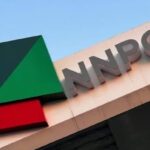
• Stakeholders worry about $48b theft, product smuggling
Fresh concerns, bordering on corruption and accountability, have trailed Nigeria’s oil swap deal, Direct Sale, Direct Purchase (DSDP), which gulped an average of 63.46 million barrels of crude, valued at $5.5 billion yearly, going by prevailing oil price.
Stakeholders, who gathered in Abuja, yesterday, insisted that urgent action was needed to unravel corruption in the scheme through beneficial ownership.
The Mele Kyari-led Nigerian National Petroleum Company Limited (NNPCL) had, in 2021, extended the DSDP programme, when it picked 16 consortia to receive, refine crude and thereafter, import petroleum products to meet demands for Premium Motor Spirit (PMS), jet fuel and diesel.
To comply with local content standards, international partners were merged with Nigerian companies under the DSDP arrangement.
In the first eight months of 2021, about 63.46 million barrels of crude had already gone into the deal, even as the national oil company last year extended the contract amid payment of subsidy and zero local refining capacity across the 445,000 nameplate state refineries.
Speaking at an event organised by Policy Alert, in collaboration with Nigeria Extractive Industries Transparency Initiative (NEITI), stakeholders in the oil and gas sector insisted that there was need to interrogate opaqueness of the oil swap deal with data.
Recall that in 2022, The Guardian had reported that the ‘dirty fuel’ saga, which led the country into fuel scarcity with thousands of vehicles damaged, came from excessive and unfair profit-seeking practice by some of the contractors handling the crude-for-fuel swap .
NEITI Executive Secretary, Ogbonna Orji, who warned against impacts of crude oil theft and smuggling of petroleum products, in addition to the crude for fuel deal, harped on the need to provide stakeholders in the extractive industry a platform to share data and analytical insights on Nigeria’s crude swaps, identify gaps and weaknesses in the exchange deals, and highlight corruption red flags or risk areas, while initiating inter-agency collaboration on the use of beneficial ownership data between anti-corruption agencies and regulators.
Orji also stressed the imperativeness to extract a commitment from state actors, especially anti-corruption agencies (ACAs) to follow up investigations on crude swaps, strengthen partnerships with specific agencies for follow-on action and generate interest around the subject among key stakeholders.
The NEITI said the incoming government must address the issues around crude theft, which have in the last 12 years, led to $46.16 billion loss.
He added that the over N13 trillion incurred on subsidies between 2005 and 2021 remained unsustainable and a priority area for the incoming administration.
Calling for the full implementation of the Petroleum Industry Act (PIA), Orji canvassed swift tackling of smuggling of petroleum products, which lately led to a loss of $1.8 billion.
Coming just weeks before the current administration hands the baton of statecraft over to the incoming one, Executive Director, Policy Alert, Tijah Bolton-Ankpan said there was urgency to set an agenda by fostering frank multi-stakeholder engagement and proposing policy recommendations that the incoming administration could work with.
He added that state and private companies doing oil and gas business with the Nigerian state must be brought to account through the beneficial ownership scheme.












